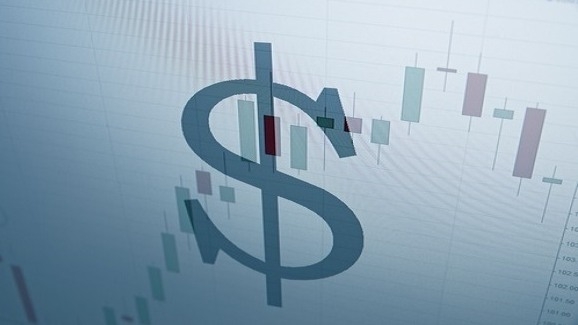
As large parts of the world economy have entered a shutdown mode for yet to be determined time periods, projecting resultant economic consequences and the timing of recoveries remains extremely challenging.
Economic forecasters are talking about 30% reductions in GDP; however, these appear to be are nothing more than guesses.
What we do know is that in the world of foreign exchange markets, all prices between currency pairs are relative values.
If the New Zealand economy can “dodge a bullet” and come out of the coronavirus health emergency/crisis earlier and with relatively less negative economic impact than other economies, it is difficult to see the NZ dollar going down in value.
Whilst the NZ government now has the public in serious isolation to stop the spread of the highly contagious disease, we were arguably a little too lax through the month of February in respect to overseas travellers entering the country unchecked.
In our overly trusting manner, we relied on “voluntary” self-isolation by arriving foreign tourists and we were not temperature checking all arrivals as other countries were doing. The voluntary approach did not work and thus we could learn a lot from autocratic Governments such as Taiwan and Singapore in such situations, who operate on compulsory orders that are stringently enforced.
Familiar pattern to rapid NZD rebound
The speed and extent of the bounce back in the NZD exchange rate value against the USD over this last week may be providing some confidence that, on a relative scale, the NZ economy may get through this health/economic shock somewhat better than others.
The Kiwi has spiralled higher to close at 0.6040 on Friday 27th March from below 0.5700 a week ago.
There has been no special local news or events to cause the turnaround and sudden NZD buying, it is merely following other currencies against the USD.
The recovery in global equity markets over recent days has been one factor behind the NZD recovery, following the investor risk-off and risk-on moods of sentiment.
Share market indices have recovered from 35% down in 2020 at one point just over a week ago to nearer 15% down today.
The NZD depreciated 17% from the January level of 0.6600 to low of 0.5480 on 19th March. The rebound to 0.6040 now has the Kiwi only down 8.5% on the January levels.
The NZD/USD rate has closely tracked the GBP/USD (“Cable”) exchange rate over recent weeks for some undetermined reason.
There is no real strong economic connection between New Zealand and the UK anymore, however our currencies are behaving in a very similar fashion against the USD.
From the $1.3000 level in January the GBP/USD rate collapsed to $1.1500 on 19th March (down 11.5%).
The GBP/USD rate has now retraced just as spectacularly to $1.2450 (only down 4% on January).
The evidence is that from 0.6040 the Kiwi may still have some catching up to do i.e. further gains to 0.6300/0.6400 over coming weeks.
In last week’s column the rapid recoveries of the NZD exchange rate from massive sell-offs’ in the 1999 Asian financial crisis and 2009 Global Financial Crisis were highlighted. The Kiwi dollar price action over the last week is showing all the hallmarks of those immediate rebounds from oversold positions.
Being the 10th largest traded currency in the world with significantly lower daily volumes and market liquidity than other currencies does mean that our sell-offs are always exaggerated (the same goes for the subsequent rebounds).
What has also become evident from the flash-crash to 0.5480 and equally rapid recovery, is that currency speculators quickly joined in on the NZD selling from offshore investors pulling out of NZ shares and bonds and repatriating their funds back home to USD.
USD shortage reverses to excess supply
The mad scramble for a shortage of US dollars around the globe two weeks ago has just as suddenly evaporated and reversed the other way.
The world is now swamped with US dollar supply as the Federal Reserve increased USD swap lines to other central banks, injected cash into their system and supported credit markets.
The USD has recorded its largest depreciation in a week against the Euro since 2009, weakening from $1.0650 on 20th March to $1.1150 on 27th March.
Based on the view that the US economy will be a lot harder hit from the coronavirus pandemic than China, Asia and Australasia, there is a strong case for the US dollar to continue to weaken significantly further.
Consider the following US economic negatives on a relative scale: -
- The US was ill-prepared and complacent to protect themselves against Covid-19 contagion. Federal agencies had their budgets cut by the Trump regime and the President himself was in total denial as to the potential impact until a few weeks ago. Their leadership from the top in a crisis has been weak and disappointing (although not unexpected!).
- Despite the massive US monetary and fiscal stimulus packages, US companies just close their doors and fire all the staff, resulting in the tsunami of unemployment benefit claims witnessed this last week. Their unemployment numbers will get a lot worse yet.
- As stated previously, 67% of the US economy is classified as services (media, entertainment, hospitality, technology, financial and transportation), a far higher proportion than other countries. These people-based industries will suffer the most under the health emergency.
- Other major industry sectors in the US economy are also being hit hard: Agriculture is seeing prices tumble (on top of the falls caused by Trump’s trade war) and they cannot get Mexican workers due to border restrictions: The oil and gas industry also suffering badly from the collapse in prices: Manufacturing was already down due to the trade tariffs and now has supply chain disruption.
The US economic downturn comes at a time when the Trump administration was running a much larger internal budget deficit and increasing Government debt levels. Foreign investors into US Treasury Bonds to provide the funding the US Government needs will be demanding a much lower USD currency entry point before they invest i.e. a substantially weaker US dollar.
Out of every crisis comes an opportunity
As we come out of the health shock/lockdown period over coming weeks/months most parts of our economy should recover relatively quickly, except for foreign tourism.
Solutions and opportunities need to be found for the tourism sector and the appointment of former Air New Zealand chief Rob Fyfe to liaise between business and the Government is a positive move in this respect.
Special Government funds should be targeted at promoting domestic tourism and innovative ways to encourage the foreign airlines to fly back down here again e.g. a safe, secure and clean destination (as compared to many other countries).
Daily exchange rates
Select chart tabs
*Roger J Kerr is Executive Chairman of Barrington Treasury Services NZ Limited. He has written commentaries on the NZ dollar since 1981.
9 Comments
The currency appreciation is the last thing that the RBNZ and Govt would want -
1. Oil has continued it's decline, as it's priced in $ and with the Kiwi strengthening the fall is magnified. Great in some ways for families budgets obviously but major impact on input costs for businesses. So effectively a deflationary affect on NZ economy - which is the last thing we need.
2. If we are going to get through this issue and the obvious loss of Tourism - we are going to need to export our way out of this. If our export income is not increased or even reduced if the Kiwi continues it's appreciation, we won't be able to generate sums required to pay for the social services.
So what exactly does the RBNZ do - do they want to see the Kiwi up at 65 (due to underlining issues with USD) - and accordingly impact of deflation and reduced income from exports?
The Kiwi is very strong currently and a clear example is that we are approaching pariety with the AUD. That the normal stablizer of a floating currency is not working well or as well in the past, it's going to make it even more difficult for NZ to work through C19 economic issues.
Unsure how we can dodge that bullet probability claim yet, when the expected Vaccines are about 18-24 months away - Airlines, Hospitality, Tourism & Educational sectors for start and their associated business support; How fast they'll re-boot? Open border seasons as usual? - and those 'big $ relief hand-out', are all those for free? - if it is, just like that Chch relief emergency fund. Then we can understand - but 10yrs from Chch tragedy?.. (Tui ads).
"In our overly trusting manner, we relied on “voluntary” self-isolation by arriving foreign tourists and we were not temperature checking all arrivals as other countries were doing."
More foreign blaming. Almost every case discovered in NZ was a returning citizens or Residents. Only cases transmitted in NZ have been citizens. Only people who have gone out to public gatherings (eg. Schools) while infected have been citizens.
For sure infected returning citizens were a big issue. We should have started putting all arrivals, regardless of citizenship, in quarantine a lot earlier.
Btw, I suspect the cases that arose from visitors from the cruise ship in Hawkes Bay were from non-citizens. Not that it matters as the virus doesn't care if you're a citizen or not!





We welcome your comments below. If you are not already registered, please register to comment.
Remember we welcome robust, respectful and insightful debate. We don't welcome abusive or defamatory comments and will de-register those repeatedly making such comments. Our current comment policy is here.